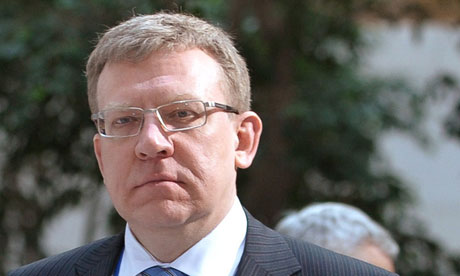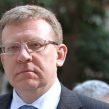
Putin’s Cadre Reshuffle Brings No New Energy but Much Old Cronyism
Publication: Eurasia Daily Monitor Volume: 9 Issue: 101
By:

Last Friday, the administration of President Vladimir Putin and the government of Prime Minister Dmitry Medvedev had a get-together at a cozy palace outside Moscow, but the mood was rather melancholic. The old-timers, who were in the majority, knew each other too well and were not exactly the best of friends – and had little interest in making friends with the new-comers (Kommersant, May 26). The latter, mostly technocrats brought to the government by Medvedev with Putin’s sour consent, were not sure how they would fit in, suspecting that instead of making policy they would be held responsible for executing decisions taken in the Kremlin (Nezavisimaya Gazeta, May 23). The program they are supposed to implement is essentially about maintaining stability, which they all know has been unraveling since last September. When Putin announced his intention to reclaim the presidency that month, massive capital flight started causing the stock exchange to slide and fall. And last week, the Russian stock market reached a new low (Moskovskie Novosti, May 22). The cabinet “technocrats’” lack of belief in their “cause” mirrors, in an oddly twisted way, the ambivalence of the Moscow opposition, the vast majority of which does not want to see a revolution – and suspects that every street protests brings it closer (Novaya Gazeta, May 22).
The political crisis, shaped by the strong reaction in the urban middle classes to the blatantly falsified elections, has been developing irrespective of the economic situation, which so far remains in “positive territory” as far as growth is concerned, but deteriorates under the impact of spasms in the euro-zone. Last week, the Center for Strategic Research released a report, which indicated that the country’s economic and political troubles would be mutually reinforcing in the near future. The report elaborated on a set of possible future scenarios ranging from an improbable “accelerated modernization” to the undesirable “chaotic transformation” (Vedomosti, Gazeta.ru, May 24). The report was commissioned by the Committee for Civil Initiatives created by former finance minister Aleksei Kudrin, who is careful not to offend Putin personally but is very articulate on the theme of the deepening crisis (Kommersant, May 25). He argues that the new government remains in denial of its own limitations in addressing the problems of excessive central control and scorns particularly the commitments of a gigantic rearmament program (Nezavisimaya Gazeta, May 25).
The government has received the nickname “hundred-bucks” meaning that its guidelines make sense only if oil is priced above $100 per barrel. Yet, the shrinking revenue base is determined also by the serious problems in the oil and gas sector. Putin mentioned last week that energy companies “are certainly of particular value to our nation,” and the appointment of his old loyalist Igor Sechin as the CEO of Rosneft signifies the priority attention to direct control over this sector (Ezhednevny Zhurnal, May 25). The state-owned company has signed a series of high-profile deals with Western corporations on exploring the Arctic shelf. But Russia’s share of the investment into its underperforming core business will have to come from the government since privatization is out of the question (Kommersant, May 23). Gazprom is also set to remain outside the reach of the “technocrats” in Medvedev’s cabinet and under Putin’s direct supervision as symbolized by his meeting with Statoil’s CEO Helge Lund in the Kremlin last Friday (Nezavisimaya Gazeta, May 28). Putin’s dilemma is that he is very positively inclined toward granting his favored companies various privileges and tax breaks – but that means less money for the tightening state budget.
One appointment that stands out in the reshuffle of aides and cronies is the replacement of Rashid Nurgaliev with Vladimir Kolokoltsev in the crucially important position of Interior Minister (Moskovskie Novosti, May 23). Nurgaliev’s failure to reform the severely corrupt police is so obvious that Putin has opted not for another loyalist but for a tough professional. Kolokoltsev, formerly the Moscow Police Commissioner, distinguished himself when he dared to come to Manezhnaya Square and put an end to the riot of football fans in December 2010 (Novaya Gazeta, May 23, May 25). It was the protest rallies in Moscow that convinced Putin that he could trust Kolokoltsev – on several occasions the police was impeccably polite but did not hesitate to show brutal force when Kolokoltsev gave the order. The issue with this trust is that for Putin every “white ribbon” is an extremist who should be treated accordingly, while every policeman in the street understands that beating peaceful protesters turns extremist groups into mass crowds.
The first test for Kolokoltsev will be the mass rally planned for June 12. But the rally also will be a test for the opposition, which must overcome the divisions among its ambitious but unimpressive leaders and produce slogans that will mobilize another 100,000 activists in Moscow and multiply hundreds of protesters in other major cities into thousands (Moscow Echo, May 27). Putin has so far succeeded in containing the economic discontent with increases of pensions and salaries. Yet, promises of more are barely believable and the new government invites irritation that could in a short time turn into resentment. The autumn might grow politically hot, and the demand that could produce strong resonance is setting Mikhail Khodorkovsky free (Gazeta.ru, May 25). The injustice of his persecution is beyond doubt for millions of Russians. The strength of character that Khodorkovsky has shown behind bars secures him moral authority that the “white opposition” needs in order to boost its own cause.
Putin assumes that his authority is superior and unassailable. Firstly, he presides over a vast bureaucratic pyramid that plays the role of the political center. In addition, however, Putin also commands the respect of the politically passive “working class,” which constitutes the foundation of this construct. This system of power is self-reproducing (as the reshuffled government demonstrates) but not self-sustaining because its main function is the redistribution of export revenues. The fast diminishing efficiency of this money supply goes together with the eroding legitimacy of the unelected bureaucracy. Putin’s center is therefore hollowing out, and its foundation is sinking. The “slow rot” scenario is the only one the new-old government can pursue. However, this outcome adds to the opposition camp everyone who believes that Russia deserves better.




